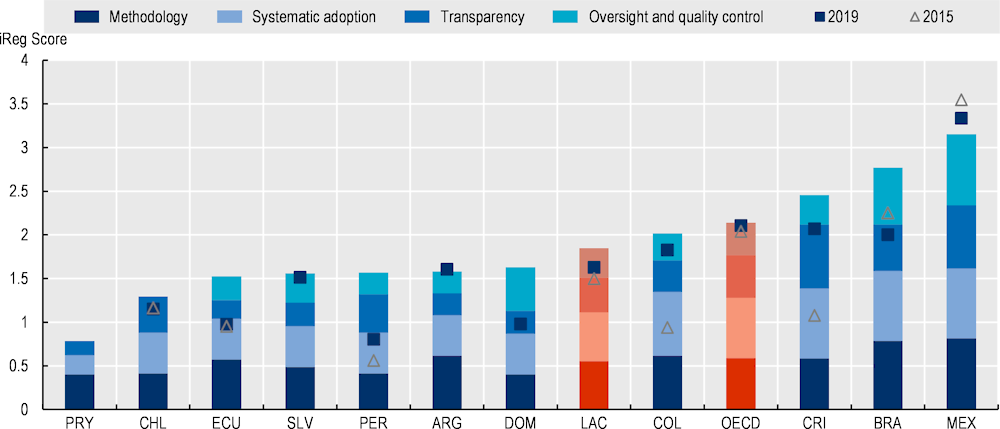Engaging with stakeholders is key for gathering information and feedback on policy problems, identifying solutions, and developing robust policies to improve their livelihoods. Policy makers should facilitate a range of means of engagement to accommodate diverse stakeholders, as this can both provide better information about the design of regulatory proposals and increase trust and buy-in for regulations. However, trust and buy-in only comes when stakeholders have a feeling of ownership, which happens if comments received in consultations are actually taken into account in the development of final regulations (OECD, 2021).
Latin American and Caribbean (LAC) countries have diversified the way they conduct public consultations in recent years. Countries are making more use of online means of engaging with stakeholders, combined with established non-virtual forms of consultation, such as physical meetings. By 2022, stakeholders in all 11 surveyed LAC countries were able to participate in at least some public consultations on subordinate regulations through websites or by email (up from 9 in 2019), and in 6 of 11 countries (55%) they could participate through virtual meetings (up from 3 in 2019). Likewise, all surveyed LAC countries continue to have physical public meetings for at least some of their regulatory proposals, and 10 out of 11 countries (91%) make consultation documents broadly available for comments to selected stakeholders. Nine of the surveyed LAC countries (82%) consult formally and informally with selected groups, such as labour unions, companies and academia (Figure 5.3).
The effectiveness of engaging with stakeholders depends largely on whether their inputs are made available and how they are used by policy makers. Seven of the 11 countries surveyed publish individual comments received during public consultations online, making opinions on regulatory proposals visible. However, only 4 of the 11 countries (36%) currently require policy makers to respond to comments in writing, and 6 (55%) require them to make any responses public. In addition, only in Brazil, the Dominican Republic, El Salvador, Mexico and Peru are policy makers required to consider consultation comments in the development of final regulations (Figure 5.4).
The OECD Indicator of Regulatory Policy and Governance (iREG) measures the quality of consultation and stakeholder engagement when developing subordinate regulations. Between 2019 and 2022, 8 out of 11 surveyed countries (73%) improved their iREG score on stakeholder engagement in this area, especially when it comes to its oversight. Brazil, the Dominican Republic and Peru are among the countries showing the greatest improvement, particularly in oversight, by creating new regulatory oversight bodies with mandates to ensure that public consultations are conducted appropriately. Ecuador has also improved its consultation processes by adopting guidelines on how to conduct consultations and diversifying how it engages with stakeholders (Figure 5.5). While most countries in the region have begun enhancing their engagement with stakeholders, there is still substantial room for improvement. Countries can benefit from improving in several areas, including transparency of consultations, considering comments for final regulatory proposals, and fully implementing legally established consultation tools.



